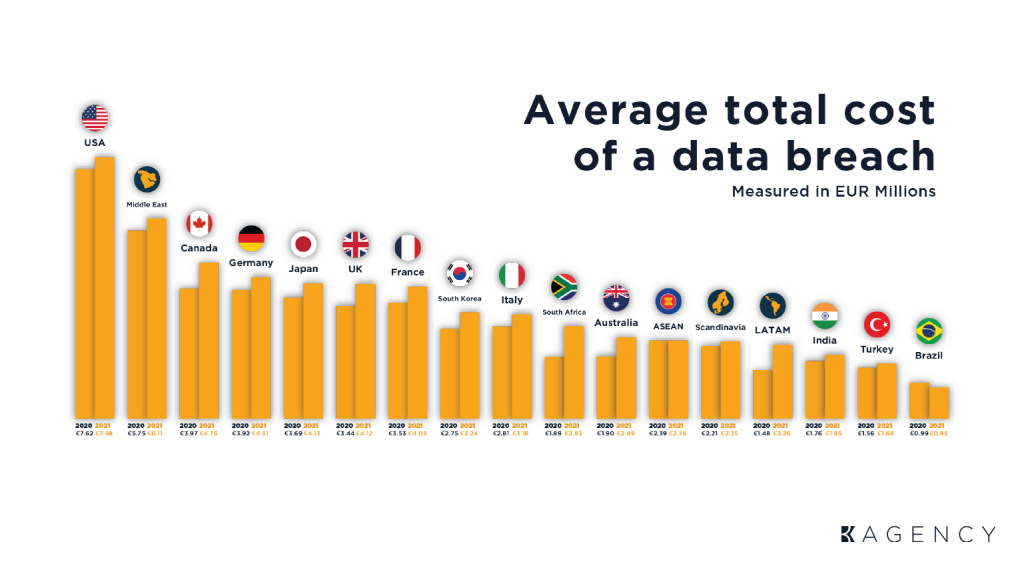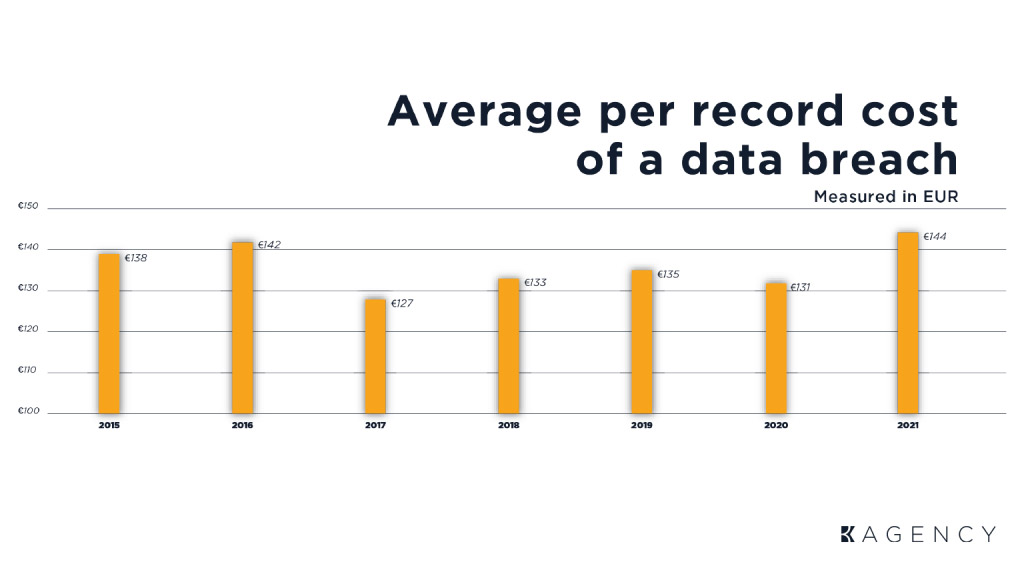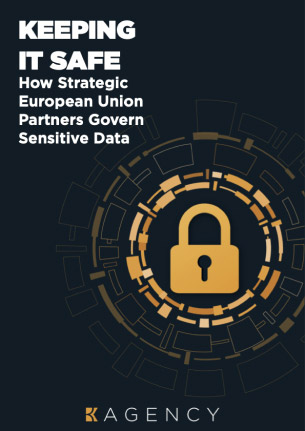Abstract
Introduction of the European Union’s General Data Protection Regulation, known as GDPR, has increased the global interest in the standards that jurisdictions apply to the safeguarding of personal information. The emergence of big data as an immense opportunity for human prosperity also challenges the traditional frameworks of data collection and ownership. The modern tech organization manages an amount of personal information that far exceeds the information stored by governments – this is particularly true in developing nations.
2021 has been the year that we saw the highest increase in data breaches since 2015.
Experts believe that this uptick can be explained by Covid-19 and the contact tracing apps that are introduced around the world without adequate infrastructure. Regardless of Covid-19, businesses are still very vulnerable to data breaches.
Source: © B&K Agency LLC

The aim of this research is to show and tackle the issues revolving around data security for companies in the Middle East. Around the world, 47% of businesses are victims of harmful or criminal cyber-attacks; it is not a num- ber we can look past easily. More interestingly, this ratio jumps to 59% in the Middle East. A number that has an easy solution and countless copybook examples–in and outside the EU.
IBM has announced that 19% of data breaches in Middle Eastern companies are caused by human error, costing them $6.93 million1. Along with a high- er rate of hacking in the Middle East, cyber-security seems like an obvious target for these companies to improve. Also, businesses also take longer to detect malicious and criminal attacks in the Middle East.
Data protection is a new issue, because it has been only a decade that companies have access to data on this level. It is a blessing and a curse: as much as our problems are still small (compared to what they can be in the future), every problem is new and unique. This requires us to be very much on top of the latest developments regarding data collection technologies and regula- tions, and always being open to new and effective solutions to tackle their shortcomings. Here, we aim to shed some light on to the existing rules and regulations in the countries bordering the EU, compare them and conclude with a set of recommendations for policymakers to implement their ideas effectively in different areas around the world.

This overview provides a detailed look into the legal frameworks that under- pin data storage, transfer, ownership, access, information, and opt-ins and outs, applied to a variety of resources ranging from financial services to net- work providers and collection for security purposes. The countries in focus are Israel, Cyprus, Lebanon, Turkey, Georgia, and the United Arab Emirates.
On top of the existing legal structures, this document also takes a look at the liabilities involved, and the penalties imposed on entities and persons in the absence of adequately providing, storing, or managing data.
Source: © B&K Agency LLC
